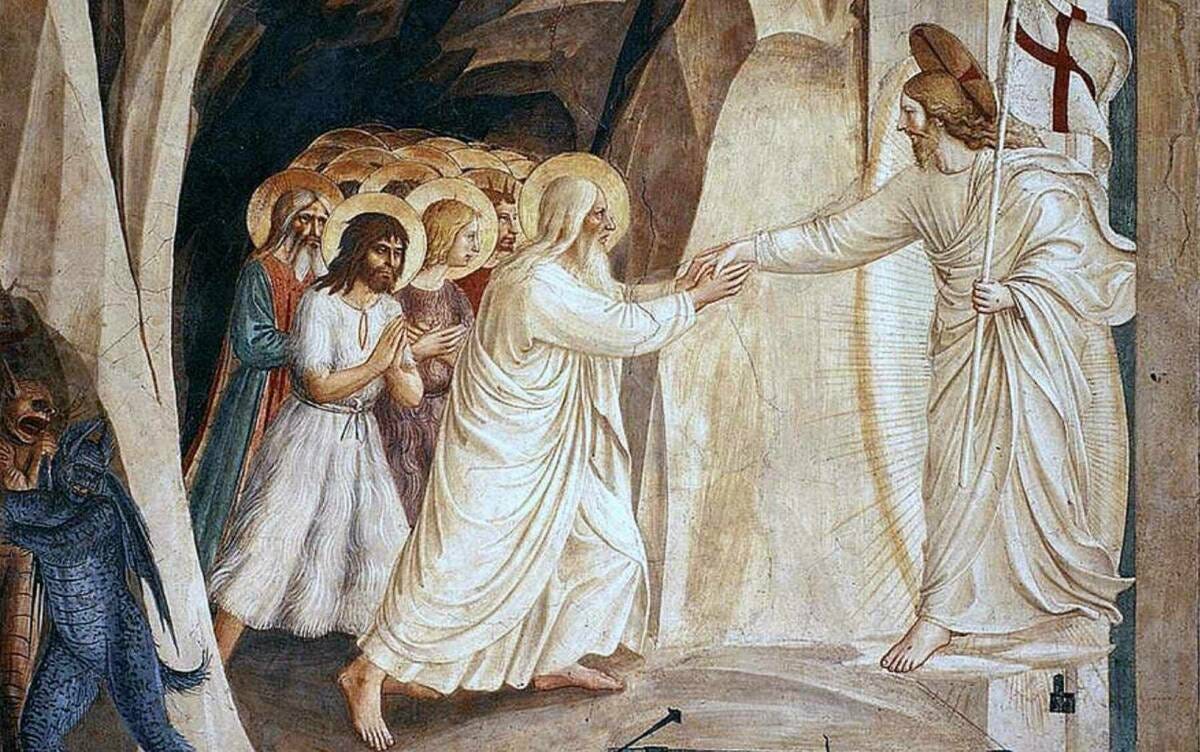Because children have abounding vitality, because they are in spirit fierce and free, therefore they want things repeated and unchanged. They always say, “do it again”; And the grown up person does it again until he's nearly dead. For grown up people are not strong enough to exult in monotony. But perhaps God is strong enough to exult in monotony. It is possible that God says every morning, “do it again” to the sun; And every evening, “do it again” to the moon. It may not be automatic necessity that makes all daisies alike; It may be that God makes every daisy separately, but has never got tired of making. It may be that he has the eternal appetite of infancy; . . . our father is younger than we. —G. K. Chesterton
We do not know what eternity looks like or feels like. It may be that eternity is endless duration. And it may be that eternity is outside of space and time—another way of existing altogether. After all, post-Einstein we know that time is not a universal constant, and after quantum physics reconstituted our universe, many are not sure time exists at all. However, we are here in mortality, and we hope for life everlasting. How does our experience of time prepare us for what follows?
Samuel Johnson told his biographer Boswell, “Depend upon it, sir, when a man knows he is to be hanged in a fortnight, it concentrates his mind wonderfully.” His understatement is an excellent example of theological concision. Life must be about more than testing us; it must be about shaping us and preparing us for a life with the gods. Not in terms of merit or worthiness, but in our capacity for present-mindedness. And for that purpose, “concentrating the mind” is essential. This is one regard in which atheism has its advantages. If one knows our time is limited and short, we are more attentive to the lived moment. Some have argued that it is only in the context of finitude that the particular can be cherished, that it is with joy-filled moments as it is with diamonds: an infinitude would render them pedestrian.
The challenge for the believer is that the prospect of eternity can detract from full attention to the moment. The prospect of life as something to get through, to endure, to devalue, has long been a pronounced strand in Christian history. It was not always that way. Before asceticism and other-worldliness took hold, Christians were alert to the “nowness” of heaven. “Let us love the present joy in the life that now is,” Ignatius wrote as he himself faced imminent martyrdom. To the Trallians he similarly wrote that believers had left behind their old lives, having new life “bestow[ed]” on us. Only a few decades later Justin wrote to dispel the falsehood of “those who are deemed philosophers . . . that we wish men to live virtuously through fear [of the future], and not because such a life is [presently] good and pleasant."
Scant decades after Christ, Clement disregarded future joys, as he wrote to the Corinthians, given “the gifts of God” conversion had brought: “Life in immortality, splendour in righteousness, truth in perfect confidence, faith in assurance, self-control in holiness.”
Paul had told his Ephesian audience that they had been “dead through the trespasses and sins,” but now had been “made . . . alive together with Christ” (2:4-5). To the Colossians, he similarly said the faithful “have come to fullness” or “completion” in Christ (2:10). Paul drew a sharp distinction between the past misery of sin and the present, ongoing relish of the new life in Christ: “while we were enemies,” now “we also rejoice in God through our Lord Jesus Christ, through whom we have now received and enjoy our reconciliation.” By that point, Christ’s resurrection was a generation in the past, and the resurrection of the dead was in one sense a distant, future event, to follow after signs and upheavals, and to accompany the Messiah’s return. In a deeply, non-metaphorical sense, however, a resurrection of believers was happening as fast as the Christian gospel spread and quickened those who embraced its message. First Christians celebrated the immediacy of a supernal joy, of a resurrection already underway, with Eucharist being “the medicine of immortality” that marked and nourished the transformation already begun.
In a sense, time will always be a limited commodity—because we cannot at one and the same time dwell in the past, anticipate the future, and be consumed by the Good, the Beautiful, and the Holy in which we are immersed. Perhaps mortality is training us to cherish the moment before we inherit an eternity of them.
To receive each new Terryl Givens column by email, click here and select "Wrestling with Angels."





Uplifting and insightful, thank you.